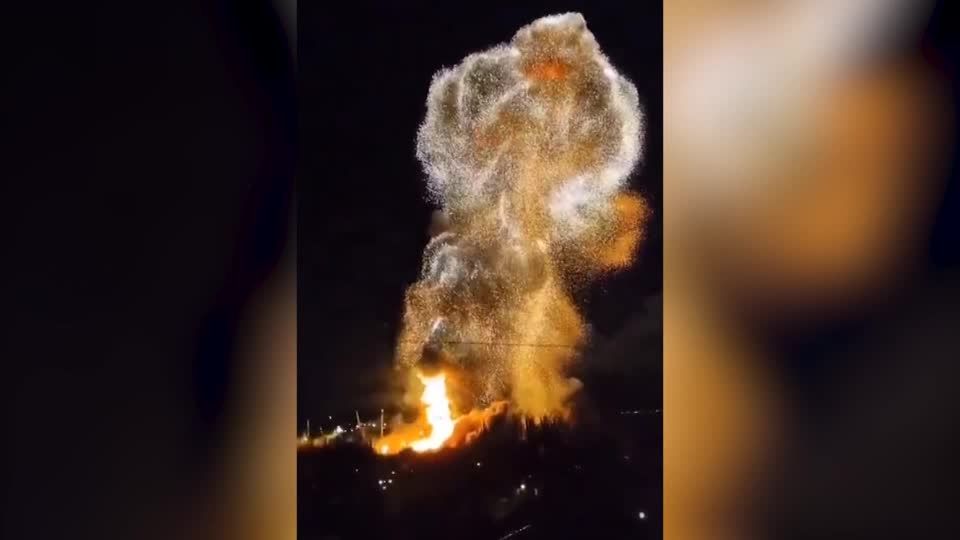Ukraine war
USA transfers “final” installment: What happens next with military aid?
Ukraine not only needs to recruit soldiers, but also needs more support
© Efrem Lukatsky/AP/DPA
Billions upon billions in aid to Ukraine are on hold in the USA and the EU – because a minority of right-wing populists are blocking their disbursement. Washington has now transferred the “last” funds for now – but what happens next?
Nothing new in the East. And things probably won’t get much better in 2024: the USA is close to the end of the year the equivalent of 226 million euros in military aid for the Ukraine Approved. It is not only the last for 2023, but also the last aid package ever. It is increasingly uncertain whether the attacked country’s largest supporter will be able to continue to help. A long-term lack of financing by the USA would not only have serious consequences for Kiev.
Every day of war costs 120 million euros
Ukraine has received around 220 billion euros in international financial aid since the start of the war. The largest share, 85 billion, comes from EU funds, followed by the USA (71 billion) and Germany with 21 billion euros. A lot of money, but not all of it goes into the military and equipment. Each day of war costs around 120 million euros. Because of its struggling economy, Kiev also needs support for things like pensions and salaries for state employees.
The country will remain dependent on money flows from abroad in the coming years – especially since the war is unlikely to end any time soon. The question, however, is how much funding will be available to the government in Kiev. Finance Minister Serhiy Marchenko now said that he was “less concerned about the year 2024 than the year 2025.” The US presidential elections in particular are giving him a headache, because if challenger Donald Trump wins, aid to Ukraine could fall victim to his “America first” policy.
US dollars for Americans
Some US Republicans are already resisting the incumbent president’s generous support for Ukraine Joe Biden. Instead of pouring money into distant wars, it should be better used for domestic American concerns, argues the far-right wing of the conservatives. Since they have the majority in the House of Representatives, they are demanding that asylum law be tightened in order to approve it – which the Democrat Biden in turn rejects. In October he asked Congress to approve the equivalent of 60 billion euros for Ukraine.
So far, however, the hesitant MPs have not even been persuaded by Ukrainian President Volodymyr Zelenskyj, who personally visited Washington had auditioned. Many are now hoping that Congress will make a fresh start when it returns from winter break on January 8th.
Resistance to aid to Ukraine is also growing in the European Union: a financial package worth 50 billion euros was actually supposed to have already been approved, but it is on hold until further notice due to a veto by Hungary. The negotiations must therefore now be continued in January. After all: Norway and Japan, which are also among Ukraine’s biggest supporters, undeterred want to continue providing help.
Standstill does not have to remain a permanent state
Even if Kiev Finance Minister Marchenko isn’t too worried about the coming year, the country’s suffering has long since been alleviated. Because on the front there is little progress for the country’s military, the situation is essentially the same as a year ago – nothing more was possible with Western help. However, some experts remind us that the standstill does not necessarily have to remain a permanent state.

“Many forget that a large proportion of the tanks and infantry fighting vehicles delivered are still available and a lot of the promised weapons are still to be delivered,” German security expert Nico Lange recently told “Welt”. Of the 200 German Leopard 1 tanks, only 30 arrived in Ukraine. In addition, more than 95 percent of all weapons systems supplied from the West have not yet been used Dutch military website Oryx writes.
If Russia succeeds, it will be expensive
The outcome of the Ukraine war has long since become a possible blueprint for other (future) conflicts around the world. The International Institute for Strategic Studies writes about the increasing tensions: “Conflict containment also requires deterrence. This includes preventing any semblance of a Russian victory in Ukraine. The whole world will pay a high price if Russia’s aggression in the year Success in 2024 or later.”
Sources:Statista“World“, DPA, AFP, Reuters, Japanese government, Norwegian governmentOryx


